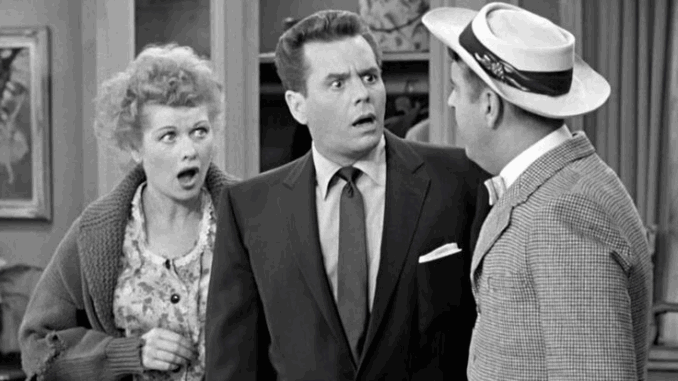
When I Love Lucy debuted in 1951, it was more than just a groundbreaking sitcom — it was a catalyst for change in the representation and roles of women both on-screen and behind the scenes in the television industry. Lucille Ball, who starred as Lucy Ricardo, wasn’t simply a comedic actress; she was a trailblazer who shattered glass ceilings in a male-dominated entertainment world, setting a precedent for generations of women to come.
Breaking Stereotypes On Screen
In the early 1950s, television often portrayed women in limited roles — typically as passive housewives or supporting characters without much agency. I Love Lucy challenged these conventions through its central character, Lucy Ricardo.
Lucy was not the typical “perfect” housewife; she was ambitious, curious, mischievous, and sometimes downright rebellious. Her schemes, whether trying to break into show business or outsmart her husband Ricky, reflected a woman who wasn’t content with societal expectations and sought to define her own identity.
This portrayal resonated with many viewers, especially women who saw in Lucy a reflection of their own frustrations and aspirations during a time when women’s roles were largely confined to the home.
Lucille Ball: More Than Just a Star
Lucille Ball’s influence extended far beyond her on-screen persona. Alongside her husband Desi Arnaz, she co-founded Desilu Productions, a powerhouse company that produced I Love Lucy and went on to create other iconic shows like Star Trek and The Untouchables.
At a time when very few women held executive positions in Hollywood, Ball became the first woman to run a major television studio. This role gave her unprecedented creative control and business authority, allowing her to greenlight projects, manage production, and shape the industry’s future.
Her leadership demonstrated that women could succeed not only as performers but also as powerful decision-makers behind the camera.
Opening Doors for Future Generations
Lucille Ball’s pioneering efforts helped pave the way for women across various aspects of television and entertainment. By proving that a woman could lead a hit show both on and off-screen, she inspired countless female actors, writers, directors, and producers.
Shows like The Mary Tyler Moore Show in the 1970s, which featured a single, independent professional woman as the lead, owe a debt to Ball’s groundwork. Today’s powerhouse creators such as Tina Fey, Shonda Rhimes, and Mindy Kaling continue to build upon this legacy, crafting diverse and complex female characters and running successful production companies.
Changing the Narrative of Female Empowerment
Beyond business and performance, I Love Lucy contributed to shifting public perceptions about women’s roles in society. Lucy Ricardo’s character embodied a spirit of resilience and humor in facing everyday challenges, subtly encouraging viewers to reconsider traditional gender norms.
Her playful defiance and determination, all while navigating marriage and family life, offered a new narrative that women could be multi-dimensional—both caretakers and ambitious individuals with dreams and flaws.
Legacy That Still Inspires
More than 70 years later, the impact of I Love Lucy and Lucille Ball’s career is still felt strongly. The show’s success opened doors in an industry that had long marginalized women and demonstrated the importance of female leadership in creative fields.
Lucille Ball’s pioneering spirit not only entertained millions but also fundamentally transformed the television landscape, making her a true icon of female empowerment in entertainment history.
